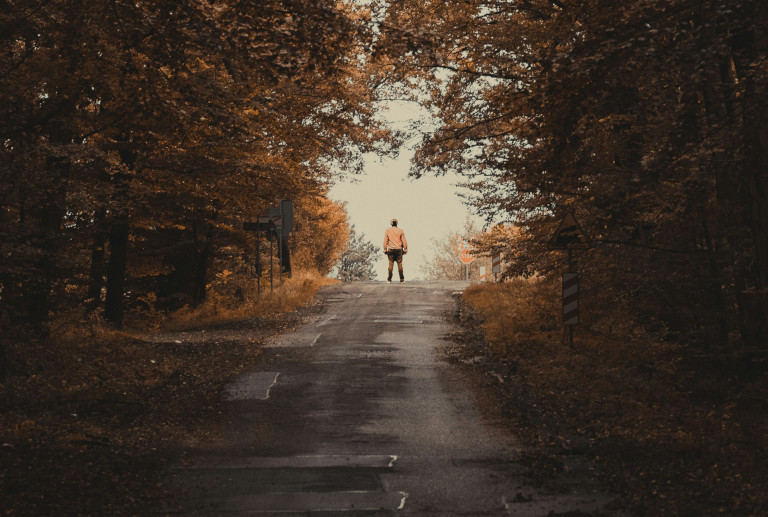
Transformative Adaptation: the path, in this ‘Trump won!?’ world
This article first appeared on Resilience here.
I write as Trump gives his victory speech. …This is a dire dire day for the living planet. Probably on balance literally the worst day ever.
Future generations will curse those who made today possible. That is not any kind of nastiness; it is simply a statement of fact.
Most of the buzz surrounding climate politics/action is centred around grand plans: to allegedly avoid ecological breakdown through tech wizardry (eg unpredictable and reckless geoengineering), or through utterly improbable revolution (bringing down the government), or through unprecedented global diplomacy, diplomacy that is making an ever-hollower noise.
A realistic review of the scientific research on full-scale climate breakdown (see my previous book, ‘Why climate breakdown matters’) reveals that it might already be unavoidable; the integrity of our ecological system is certainly profoundly jeopardised. Probably the smartest thing to say is: we are IN climate breakdown, …and that its momentum just accelerated.
Now that Trump has won a second term, who still holds out hope that international diplomacy as we know it, the CoP system, is a viable option? Trump, the man who tweeted that global warming is a concept ‘created by and for the Chinese in order to make U.S. manufacturing non-competitive,’ is not someone who is likely to lead the global push towards climate action. He will likely reverse what little progress has been made, like he did in his previous term by withdrawing from Paris. Yes, diplomats will try to find other ways. As they should. ‘Climate clubs’ will now come into their own. It could even be a good thing that people finally realise that the CoP system, which relies on unanimity for progress, is now officially moribund. But it is crucial to acknowledge the following inconvenient truth: If you still believe that international diplomacy as we know it can significantly mitigate catastrophic climate change, then you’ll have to wait until 2028 at the earliest for a chance to see a president who agrees. We do not have another 4 years.
It should now, today, be more obvious than ever that we cannot rely on the global political system. Instead, we should dedicate a large proportion of our time, energy, and resources into adaptation to the probable ecological collapse (or, at least, decline), because it is unlikely (realistically) that even our best efforts at mitigation will be enough to thwart climate breakdown and more.
Yes, there are limits to adaptation. Yes, any adaptation we centre absolutely must be mitigation-friendly, nature-friendly (aka ‘ecosystem-based adaptation’), and oriented in the direction of the changed society we need (and, one way or another, huge change is coming). But the pivot to adaptation is now little more than common sense. To try to find for ourselves a way through the very hard times that are coming.

So far, adaptation has not received the attention it deserves, since (as this new book shows) taking adaptation seriously would mean we can no longer deny just how bad the situation is, something that most of us most of the time remain desperate to deny. Adaptation requires an honest confrontation with the most inconvenient of truths, but that is preferable to the alternative; a half-hearted focus on mitigation that leaves us unprepared to live in a future of ecological carnage.
Upon concluding that climate breakdown is probable and incipient, we must act to adapt so that together we might bear the hardships of the future more ably. Adaptation should certainly not result in us giving up on trying to avoid ecological collapse, but unless we prepare for the worst (and probable) outcome, we risk an even bleaker future. That is why, as this book explains, it is high time for transformative (and deep) adaptations.
Deep adaptation is preparation for likely collapse. Transformative adaptation (TrAd) aims at a non-collapse future, but overlaps enough with deep adaptation to simultaneously prepare us for a collapse future. TrAd is primarily about building a future from the bottom up, building the resilience we so badly are going to need. TrAd is about protecting the local and recovering it, eventually globally.
In this dark, dark moment of a new Trump term, we must face ourselves, face reality, face the future. Now is not the time for grand plans. Now is the time for building resilience, where we live, learning from others who have already been doing so, networking our efforts.
There is a small and rapidly closing window…to prevent uncontrolled civilisational collapse.
Today, that window just got a lot smaller.
How might we just conceivably prevent outright collapse?: I have indicated the only likely pathway: through sufficient Transformative (& Strategic) Adaptation. This meansinner-AND-outer adaptation. It means work primarily from bottom up. It means courage; & the processing of great grief and fear. It means making our communities robust against what’s coming.
Because as of today we know more surely than ever that what’s coming is going to be bloody hard.
But: it is our path.
Many thanks to Joe Eastoe, for invaluable help in researching this piece.


